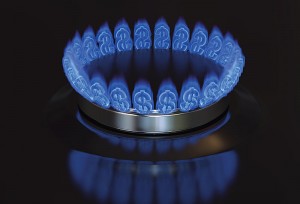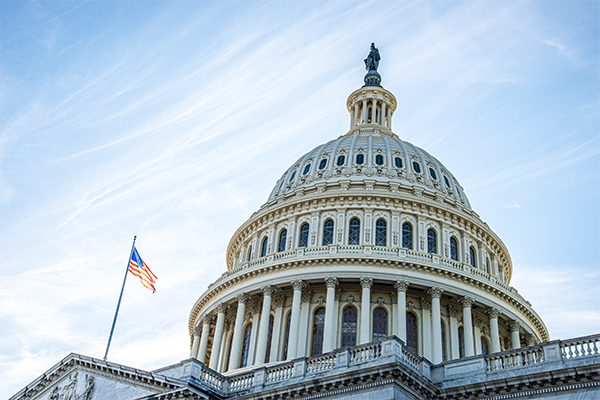Propane retailers reflect on the presidential election

Says President-elect Donald Trump: “On energy, I will cancel job-killing restrictions on the production of American energy, including shale energy and clean coal.” Photo: iStock.com/Bastiaan Slabbers
Shannon McWhorter’s mood suddenly changed after the Nov. 8 presidential election.
A pre-Election Day phone conversation with McWhorter, president and CEO of Sequoia Gas Co. in northern California, largely centered on government policies that are hurting propane. But McWhorter’s outlook for the industry brightened significantly following the outcome of the presidential and congressional races.
“I feel a hell of a lot better in the direction we’re going to try to take the country,” McWhorter says.
With Donald Trump winning the presidency and the Republicans retaining control of Congress, McWhorter is optimistic about a number of areas in which the federal government affects Sequoia Gas and businesses like his. McWhorter expects Trump’s energy policies to provide a boost to the propane industry. He also anticipates Trump’s anti-regulation approach to provide small businesses like his with some long-awaited relief.
“If he does pull back some regulations or generally stem the tide of regulation that has been coming down on energy businesses, I think you’re going to see an upswing in the American economy,” McWhorter says.
Election as a rejection
As big as Trump’s win was to McWhorter and other propane retailers, the loss sustained by Hillary Clinton was arguably the greater victory for the industry.
Data produced from LP Gas’ October 2016 State of the Industry survey of 100 propane retailers illustrates this point, as 71 percent say a Clinton administration would have had a negative impact on their company. Only 5 percent say a Clinton administration would have affected their businesses positively.
“Hillary Clinton wants to do away with oil, coal, propane, and she wants to eliminate fracking altogether,” says Rick Levinson, CEO at Delaware-based SchagrinGas, in a pre-Election Day interview. “The fracking concept is what has breathed fresh air into the industry. It lowered pricing and increased availability and reliability.”
McWhorter also frowned on Clinton’s energy policy, which, according to a statement on her campaign website, was designed to “phase down the use of expensive and highly polluting fuel oil and propane to heat homes and businesses over the long term.”
“Here in California there’s a full-out war by the state government to, I feel, put fossil fuels out of business in the state,” McWhorter says. “Between [Gov.] Jerry Brown, (D-California), and his appointees to CARB (the California Air Resources Board) and the power they have over us, you just look at the laws they’ve already passed, and by 2030 we have to be using a lot less fossil fuels.”
Levinson sees restrictions on fossil fuels, like the ones originating in California, trickling his way on the East Coast. Ultimately, though, the nation’s rejection of Clinton and election of Trump is an opportunity to halt or at least slow some of those policies, he says.
“The ‘greens,’ as I call them, have taken over Washington and a lot of the companies regarding this zero [net] energy home (ZNEH),” Levinson says. “It’s being mandated in California, meaning the home cannot consume any more energy than it produces.”
According to this California mandate, all new homes within the state must be ZNEHs by 2020.
“This means a windmill or solar,” he says. “What seems to start in California moves its way eastbound, unfortunately. We scoff at it, but more curious things have happened. That’s why it’s so important that we get the story out about the true cost of owning a home today and the insecurities of having it based strictly on a renewable resource energy.”
Optimism prevails

Zero net energy homes are a threat to propane’s residential market revenues. Photo: iStock.com/Model-la
Work remains to improve propane’s standing across the nation, but retailers at least feel more positively about a Trump administration than a Clinton-led federal government as they look ahead. In fact, 44 percent of retailers in the LP Gas survey say the Trump administration will have a positive impact on their company.
“I hope this election offers more of an opportunity to grow,” says Chad Gregg, regional manager at Enderby Gas in Krum, Texas. “Even though it’s probably not his priority, I believe Trump’s administration will be sensitive to green fuel.”
Perhaps one of the biggest potential takeaways of Trump’s victory for retail propane companies is the impending repeal of Obamacare, which the president-elect prioritized throughout the campaign.
“Health care is one of the biggest issues affecting my company,” McWhorter says. “I’ve seen my premiums go up so drastically that I’ve had to cut back what I’m able to offer my employees. I used to cover 100 percent of my employees, and a year ago I finally had to bite the bullet. My employees now have to pay 25 percent.”
McWhorter’s health care costs will rise even further in 2017, so repealing Obamacare is a priority for him as a businessman.
“I got my renewal, and the premium is going up 17 percent in 2017,” he says. “That’s a big deal for businesses. We always prided ourselves in paying 100 percent of our employees’ benefit. My insurance agent has been harping on us for 10 years, saying nobody does that anymore. But I want to be loyal to my employees because they are loyal to me.”
Obamacare has affected Gregg’s company, as well.
“As a business, health insurance costs have gone through the roof,” he says. “People can’t afford it. I have people now at work who are living with issues they would typically get addressed, but they don’t because they can’t afford it.”
Brian Buschur, manager at McMahan’s Bottle Gas in Dayton, Ohio, is also optimistic following the presidential election’s outcome.
“As a generalization, I feel a Republican administration bodes well for the propane industry,” he says. “They tend to hold the same values we do. Some of the things Clinton said were an attack on fossil fuels. So hopefully Trump will pull back some of the power the EPA (U.S. Environmental Protection Agency) has.”
Uncertainty looms

The industry had mixed feelings about both presidential candidates but largely agreed that a Clinton administration would have been bad for propane. Click to enlarge.
Not everyone is instinctively positive about Trump, though. Forty-two percent of propane retailers in the LP Gas survey aren’t sure what Trump’s presidency will bring.
“With PERC (the Propane Education & Research Council) being such a vital part of the industry, my hope is that the check-off program isn’t drained when he ‘drains the swamp,’” says Gordon Cunningham, director of marketing and sales at Georgia Gas Distributors in Sandy Springs, Georgia. “[PERC] is very important to our industry and vital to growing our markets, including the new markets we have.”
Ryan Tudyk, propane manager at Jackson Electric Cooperative in Edna, Texas, is also in wait-and-see mode regarding the Trump administration.
“As far as having Republicans all three ways, Republicans are usually pro-American energy,” he says. “I hope he does things like a businessman and not a politician.”
According to the National Propane Gas Association (NPGA), Trump and Congress will likely tackle several issues of interest in 2017. NPGA expects a tax reform initiative to be high on the federal government’s to-do list. Congressional Republicans may also pursue an energy reform bill, NPGA adds.
Trump has also been vocal about investing in infrastructure development, an area the American Petroleum Institute (API) cites as vital for energy prosperity.
“Seventy-seven percent of voters support increased production of U.S. oil and natural gas,” says Jack Gerard, president and CEO at API. “Eighty-two percent support increased infrastructure development, which keeps affordable energy moving to homes and businesses, and could generate $1.14 trillion in capital investments and support as many as 1.15 million jobs.”
McWhorter is all for developing U.S. infrastructure, as well.
“Whether it’s highways or bridges, infrastructure [spending] is great for our industry because they use propane on all those big infrastructure jobs and put people to work,” he says.
















